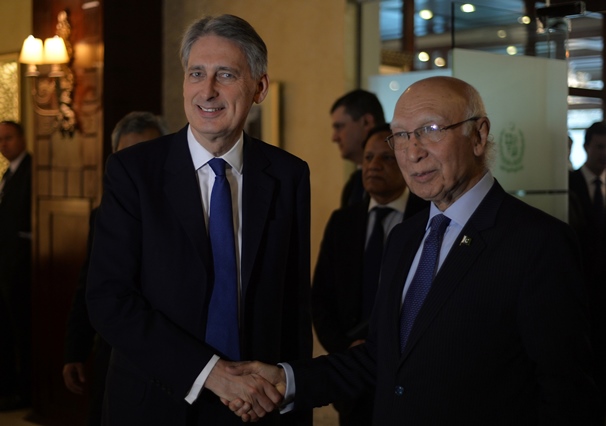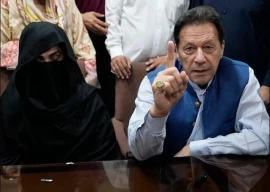
Sartaj Aziz, foreign policy adviser to Pakistan's prime minister, said his country, the United States and China would use their influence to persuade the Taliban to come to the table to try to end a nearly 15-year-old war.
"I hope in the coming days some progress (can be made) ... at some level, and once we start, we hope they will gather momentum," he told a press briefing in Islamabad alongside British Foreign Secretary Phillip Hammond.
Pakistan, India should not allow non-state actors to derail peace process: British foreign secretary
Officials had said they expected direct peace talks between the Afghan government and the Taliban to begin in early March following a meeting of the so-called Quadrilateral Coordination Group, made up of representatives of Afghanistan, Pakistan, China and the United States, in February.
But the Taliban, which calls itself the Islamic Emirate of Afghanistan, said last week it would not participate.
The group said it would only join talks once all remaining foreign troops left Afghanistan, its leaders were removed from a UN terrorist blacklist and its prisoners freed from Afghan jails. Aziz said he felt the Taliban could be persuaded.
Afghan Taliban leadership in Pakistan: Aziz
"Many of the preconditions that they are looking for can come as a result of negotiations and not in advance of them," he said, adding that the Afghan government had in the past expressed willingness to exchange prisoners.
Violence has increased in Afghanistan since the withdrawal of most foreign combat troops in 2014, leaving the newly trained Afghan police and army to fight the Taliban.
Pakistan, US to hold strategic talks on Feb 29
Last year, the Taliban captured a provincial capital for the first time since their hard-line extremist government was toppled by a US-led invasion in 2001.






1732643921-0/4548774-1403918848-(1)1732643921-0-270x192.webp)










COMMENTS
Comments are moderated and generally will be posted if they are on-topic and not abusive.
For more information, please see our Comments FAQ